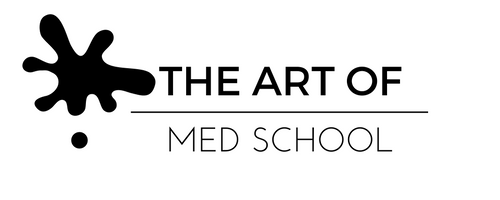Clinicals are awesome. You are seeing patients, developing your acumen and connecting all the dots that you’ve been studying up until now. It is also nothing like basic sciences. While most lectures are important and will help you prepare for your shelf exams, they are simply not enough. When you see a patient with a disease, you’ll likely remember that disease better because you have a face to connect it with. However, unless you see every disease presentation that you’ll need to cover, it will still be not enough. Common things are common, but the test covers more than just that. This is how I kept myself on track with studying during clinicals.
- Make a solid plan
Seems obvious, but it is so tempting to get lost in your clinical work. You’ll likely be spending a lot of time working with your preceptor. That is great experience but also makes room for some of the pitfalls discussed in the intro. Before you even hit day one of your rotation, decide what material you want to cover, when you want to cover it and what resources you’ll use. There will be another post about what materials I typically used in a rotation.
- Make dedicated study time and keep it sacred
This is especially hard if you are travelling a lot for your clinicals or if you find yourself in a big city. Most of my clinicals were done in Chicago which has a tremendous amount of things to do, places to see and food to eat! My family also came to Chicago, so I had to balance clinicals, studying, Jen’s work and parenting. With Jen’s work, there had to be some flexibility, but once I had study time in the calendar, it became sacred. Can I pick up Calder from daycare? No. Can I go to whatever cultural outing or social event? No. This is my time to study and that is what simply must happen. For those who are in similar boats, a big part of managing our relationship during this portion is clearly defining those times. When I made sure I did that, it was much easier for Jen to help me keep those times.
- Find your extra minutes
It’s amazing how much little extra time you can find here and there throughout the day. It might those few extra minutes while you wait to round, carving some time out of your lunch, the bus ride, whatever. During basic sciences, I mathed out that if I utilized this extra down time, I added nearly 40 hours of studying to my monthly schedule. That makes a huge difference! The caveat is also be realistic about what material you can study during these times. You’re not going to make it through a whole in depth online lecture, you can’t concentrate on doing a bunch of questions, etc. However, this is a great time for things like flashcards, flipping through some journal articles and things of that nature.
- Podcasts
Y’all, podcasts are amazing and I’m not just talking about Art of Med School. There are a plethora of podcasts out there that cover pretty much every topic. That sounds like another article. What rotation are you in now? There are podcasts on that. What specialty do you want? Podcasts on that, too. What journals do you want to keep up on? Yup, most of them have free episodes. You can listen on your commute, while you get ready for the day, as you lay in bed, while you workout, while you clean. All of these are great times to get that little bit extra in.
- Have a sacred study space
I love my family, but if they’re home, I simply can’t study. My kid loves to spend time with me (and obviously, I do with him, too), but it makes it so I can’t keep my study time sacred. So, just like we have sacred study time, find a sacred study space. Or spaces, if you need it. There are lot of distractions in your home environment – TV, cleaning, food, whatever. You may have to travel to study. I highly recommend finding a good public library. They are often much quieter than coffee shops, have free wi-fi and are generally a good environment. When I go to my regular library, most of the time, I am surrounded by other people studying. That makes you feel like you need to stay focused, too! The added benefit of public libraries is most have some sort of children’s section. When I need that extra time that was scheduled, Jen and Calder could hit the children’s section while I go to my study space!
Alright, those are 5 really solid ways to help you stay on track. Keep motivated, keep focused and keep studying. You’re going to do great!

